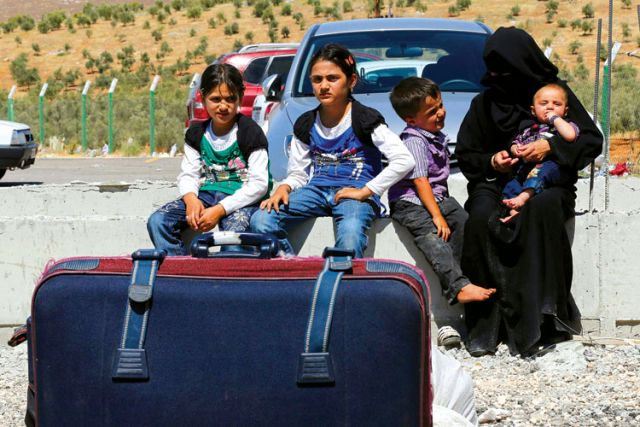The St. John’s, Nfld., Catholic charity which delivers obstetrics and prenatal care to women in developing countries — mainly sub-Saharan Africa — has called for the international community to establish a fund to respond to refugee women facing child birth.
“What we’re saying is, why couldn’t we have a sort of Marshall Plan for mothers, a special fund like they have for AIDS?” said MaterCare executive director Dr. Robert Walley. “That the international community comes together to ensure that no mother goes without proper care, like we get in Canada.”
Syria and the Democratic Republic of Congo, two countries mired in civil war, are of particular concern, Walley said.
Rape used as a weapon of war in the DRC and snipers targeting obviously pregnant women in Syria have made mothers and their children the primary victims of the conflicts in those two countries, Walley said.
In the last 20 years maternal deaths have fallen 47 per cent, according to the United Nations’ Millennium Development Goals agency. While that means things have gotten better in many places where incomes, education, health care and nutrition have improved, Walley worries about women in war zones and refugee camps.
“What are you going to say to the 330,000 women who die every year from just having a baby?” Walley asked.
While the United Nations is encouraged by the progress on maternal mortality, it concedes the international community will miss its goal of a three-quarters reduction in maternal mortality between 1990 and 2015.
Canada’s Muskoka Initiative announced at the 2010 G8-G20 meetings in Huntsville, Ont., and Toronto made maternal, newborn and child health “Canada’s flagship development priority.” Ottawa promised $1.1 billion in new funding between 2010 and 2015, bringing Canada’s total spending in the area to $2.85 billion.
The program focuses spending on 10 countries which the government believes “have demonstrated they can make progress on maternal, newborn and child health.” The countries are Afghanistan, Bangladesh, Ethiopia, Haiti, Malawi, Mali, Mozambique, Nigeria, Sudan and Tanzania.
The programs aim at long-term progress. But Walley is worried about emergency situations.
“Pregnancy doesn’t stop conveniently when there’s an earthquake or a tsunami or an internal conflict. It just goes on. But nobody goes in there with an obstetrics field hospital,” he said.
Church involvement in independent projects is essential, Walley said. Catholics must counter highly politicized efforts to push contraception and abortion as the answer for mothers with at-risk pregnancies in Africa, Asia and Latin America.
“If you want to reduce maternal mortality they’re both irrelevant,” said Walley. “Because most maternal deaths occur within the last three months of pregnancy. They occur during labour and delivery. They occur because there’s no proper access to cesarean section, blood transfusion, treatment of anemia and AIDS. All of these things need a practical response.”
MaterCare International Inc. has major projects in Kenya, Haiti and Ghana including a maternity hospital in Isiolo, three-and-a-half hours’ drive north of Nairobi in rural Kenya. It sponsors smaller projects in locations around the world.

